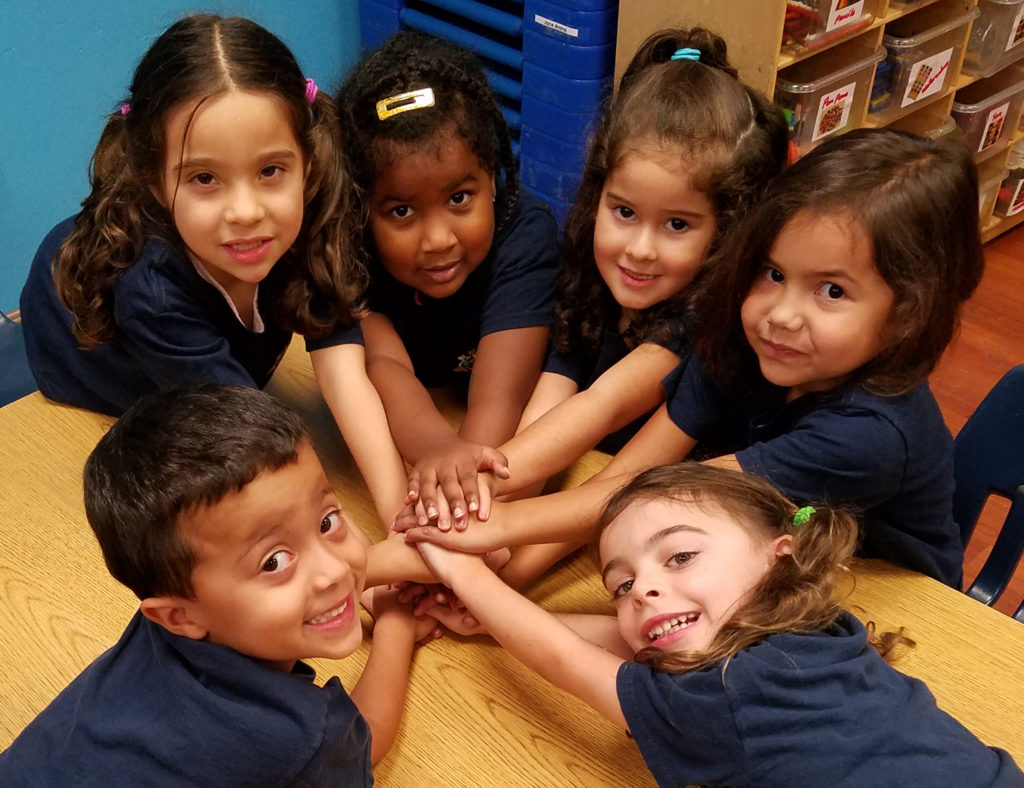VPK AT THE LEARNING CENTER FOR KIDS
VPK stands for Voluntary Prekindergarten Education Program. VPK gives children a jump start by preparing them for school and enhancing their pre-reading, pre-math, language and social skills. By developing the skills children need to become strong readers and students at an early age, children are more likely to be successful in school.
VPK classrooms offer high-quality programs that include high literacy standards, developmentally appropriate curricula, manageable class sizes, and qualified teachers.
VPK is the beginning stage for kindergarten. In our Pre-K IV & VPK and VPK classrooms we give children the opportunity to make choices. This is very important in the development of their own individual personality.
Program Goals:
At this stage they are ready to learn the sound of each letter, distinguish capital letters and lower case letters. They are capable of starting the pre-reading process and recognize numbers and quantities.
We provide a friendly and caring atmosphere in which each individual child’s needs are fulfilled.
PRE-READING AND WRITING SKILLS:
1. Match spoken words that begin with the same sound.
2. Name letters (spell letters)
3. Recognize sound of each letter).
4. Learn to brake down the sounds and learn how to put sounds together.
5. Sort letters from other symbols.
6. Clap or tap for each syllable of a word.
LANGUAGE ARTS: Expressive and receptive language experiences
1. To describe purpose of objects.
2. To describe and relate events.
3. To respond to questions of relations and objects.
4. To acquire vocabulary for expression and observation.
5. To develop a vocabulary for problem solving.
MATHEMATIC SKILLS
1. Count by note.
2. Name numerals in print.
3. Match and name geometric shapes.
4. Use one to one correspondence in counting.
GROSS AND FINE MOTOR SKILLS: Whole body and hand movement experiences
1. To perform balance tasks.
2. To perform hopping and jumping tasks.
3. To move expressively to music
4. To follow walking pattern.
5. To reproduce a rhythm pattern.
6. To remember and perform two or three actions in order.
7. To cut more complex patterns with scissors and use scissors with control.
8. To perform simple paper folding tasks.
9. Hold a writing instrument between thumb and finger.
10. wash hands properly
11. Brush teeth properly
VISUAL DISCRIMINATION:
1. To identify missing parts of objects, shapes, letters, and numerals.
2. To match, sort, and name letters and numerals.
3. To reproduce a series of letters or numerals from memory.
4. To reproduce and name a sequence of four items form memory.
5. To sequence objects, pictures and symbols from left to right.
AUDITORY PERCEPTION: Listening experiences
1. To respond to presence and/or absence of location of sound.
2. To use creative expression in recalling poems and role-playing in stories.
3. To remember and tell highlights of a story in sequence.
4. To identify specific works from sentence context.
5. To discriminate texture, shapes, and sizes through touch.
SENSORY-PERCEPTUAL: Visual and tactile experiences
1. To create a sequence of objects according to size.
2. To classify objects by one attribute.
3. To classify pictures by categories.
4. To reproduce 3-dimensional patterns.
5. To identify missing parts of pictures and puzzles.
6. To reproduce and name a sequence of at least 3 objects from memory.
SOCIAL SKILLS:
1. Share family experiences and/or traditions
2. Express pride in accomplishments.
3. Show awareness of jobs and their requirements.
4. Set personal goals and follow through.
5. Talk with others to solve problems.
6. Increase self esteem and be confident about their choices.
7. To show respect for others
8. To show a socially acceptable behavior.
9. To stimulate tolerance and control.
10. To understand responsibility for his/her actions and decisions.
If you live in Florida and have a child who turns 4 years of age by September 1, your child is eligible for Florida’s FREE Voluntary Prekindergarten (VPK) education program.
VPK classrooms offer high-quality programs that include high literacy standards, developmentally appropriate curricula, manageable class sizes, and qualified teachers.
Two programs are offered annually:
The school-year program includes 540 hours of instructional time and begins in August. The summer program consists of 300 instructional hours and can begin as early as May 1.
Highlights of the VPK Program:
FREE for all children who live in Florida and who turn 4 years of age by September 1st.
No registration fee.
Parents may choose a participating private child care or public school provider
Early language and literacy focus
Curriculum
Focuses on reading, writing and social skills
Prepares children to be ready for Kindergarten
VPK Program Options
Option 1: school-year VPK – 540 instructional hours School-year VPK
Option 2: summer VPK – 300 instructional hours. Summer VPK
ENROLLMENT is EASY!
Enroll your 4-year-old in VPK today by visiting: www.VPKhelp.org and obtaining your Enrollment Certificate!

